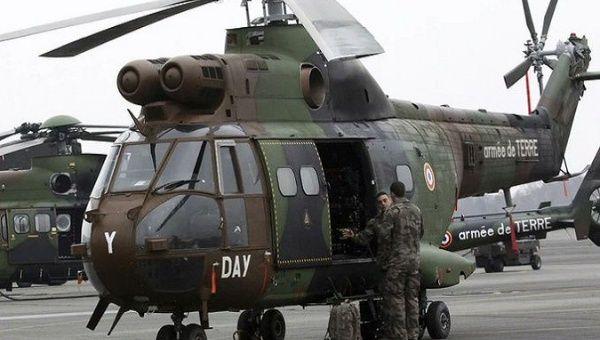
Africas Battle Against Terrorism
Amr Farouk, a researcher in the affairs of terrorist groups, confirmed that Egypt’s provision of heavy weapons to Niger is a reflection of Cairo’s vital and strategic role in combating terrorism in Africa.
Farouk indicated in a statement to RT that the Egyptian state’s efforts to support the countries of the Sahel and Sahara regions to uproot extremist currents and terrorist groups come within the framework of several levels.
He highlighted the most important one: Cairo’s participation in chairing the Global Counterterrorism Forum (GCTF), which is currently co-chaired by Egypt and the European Union. The Forum brings together policymakers and practitioners from around the world to share experiences and expertise and to develop practical, publicly available tools and strategies on how to prevent and counter the evolving terrorist threat.
Its objectives are in accordance with the Charter of the United Nations, the relevant Security Council resolutions, and international law, as well as supporting the United Nations strategy to combat terrorism.
Its overarching mission is to reduce the vulnerability of people worldwide to terrorism by mobilizing expertise and resources to prevent, combat, and prosecute terrorist acts and counter incitement and recruitment to terrorism.
The terrorism affairs researcher pointed out that the Egyptian state also launched the “Sahel and Desert” center to combat terrorism in African countries through three tracks: information exchange, training, rehabilitation, and armament. It also focused on strengthening the capabilities of its defense and security forces for effective combat and its contribution to laying the foundations for planning. Egypt makes use of its experience in the field of combating terrorism and violent extremism in the implementation of its plan. In addition to achieving a set of successes in stopping the penetration and expansion of terrorist groups.
The UN has always been very keen on combating the issue of terrorism in Africa. Speaking on behalf of Secretary-General António Guterres, Amina Mohammed has many times tackled the issue, where she emphasized that “nowhere has terrorism been felt more keenly than in Africa,” underscoring that terrorists and violent extremists, including Da’esh, Al-Qaida and their affiliates, have exploited instability and conflict to increase their activities and intensify attacks across the continent.
Urging support for regional organizations and sustainable financing to counterterrorism in Africa, the Deputy Secretary-General stressed that the spread of terrorism is a concern for the entire international community and requires a preventive approach that includes respect for human rights and international law.
“In today’s hyperconnected world, the spread of terrorism in Africa is not a concern for African Member States alone. The challenge belongs to us all,” she underscored. Countering international terrorism requires effective multilateral responses that address concurrent and converging threats, such as the worsening climate crisis, armed conflict, poverty and inequality, lawless cyberspace, and the uneven recovery from COVID-19.
Moussa Faki Mahamat, Chairperson of the African Union Commission, said African initiatives, such as the Accra Initiative and the Peace Fund, demonstrate that the continent can mobilize its resources and its men and women in the fight against terrorism. However, the traditional means of responding to threats to peace—peacekeeping and peacebuilding—no longer correspond to new menaces.
Faki Mahamat stressed that the mandates of United Nations missions should be revised to make them more effective. The Union stands ready to work with the United Nations and the Council to initiate a new approach to counter the scourge and its direct and indirect causes.





